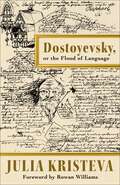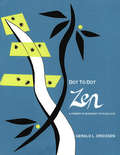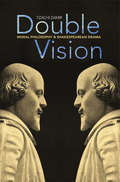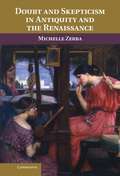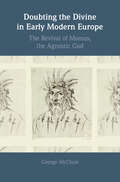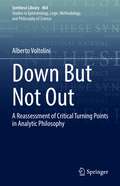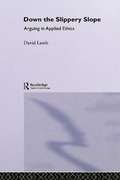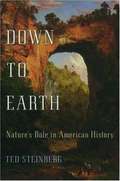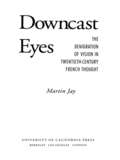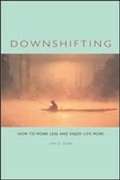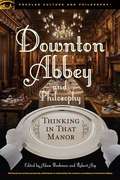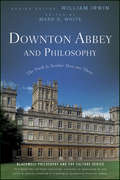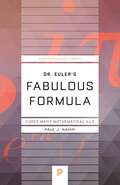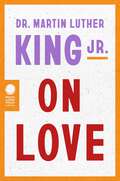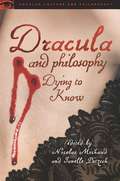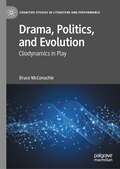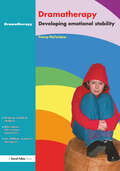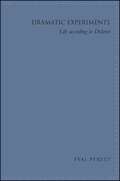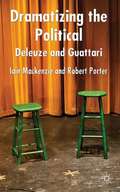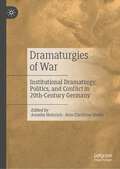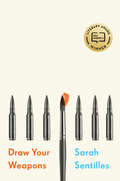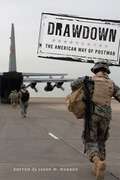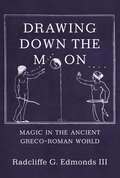- Table View
- List View
Dostoyevsky, or The Flood of Language (European Perspectives: A Series in Social Thought and Cultural Criticism)
by Julia KristevaGrowing up in Bulgaria, Julia Kristeva was warned by her father not to read Dostoyevsky. “Of course, and as usual,” she recalls, “I disobeyed paternal orders and plunged into Dosto. Dazzled, overwhelmed, engulfed.” Kristeva would go on to become one of the most important figures in European intellectual life—and she would return over and over again to Dostoyevsky, still haunted and enraptured by the force of his writing.In this book, Kristeva embarks on a wide-ranging and stimulating inquiry into Dostoyevsky’s work and the profound ways it has influenced her own thinking. Reading across his major novels and shorter works, Kristeva offers incandescent insights into the potent themes that draw her back to the Russian master: God, otherness, violence, eroticism, the mother, the father, language itself. Both personal and erudite, the book intermingles Kristeva’s analysis with her recollections of Dostoyevsky’s significance in different intellectual moments—the rediscovery of Bakhtin in the Thaw-era Eastern Bloc, the debates over poststructuralism in 1960s France, and today’s arguments about whether it can be said that “everything is permitted.” Brilliant and vivid, this is an essential book for admirers of both Kristeva and Dostoyevsky. It also features an illuminating foreword by Rowan Williams that reflects on the significance of Kristeva’s reading of Dostoyevsky for his own understanding of religious writing.
Dot to Dot Zen
by Gerald L. EricksenThe author presents a series of 79 visual koans in the form of dot-to-dots which help to translate Eastern thought into Western understanding. Each illustration is accompanied by a concise phrase from Buddhist teachings along with a brief interpretation. There is also an on-going sequence of relaxation instructions drawn from Buddhist psychology. Each set fosters a unique interaction between mind and spirit, which will help lead the reader from confusion to enlightenment.
Dot to Dot Zen
by Gerald L. EricksenThe author presents a series of 79 visual koans in the form of dot-to-dots which help to translate Eastern thought into Western understanding. Each illustration is accompanied by a concise phrase from Buddhist teachings along with a brief interpretation. There is also an on-going sequence of relaxation instructions drawn from Buddhist psychology. Each set fosters a unique interaction between mind and spirit, which will help lead the reader from confusion to enlightenment.
Double Vision: Moral Philosophy and Shakespearean Drama
by Tzachi ZamirHamlet tells Horatio that there are more things in heaven and earth than are dreamt of in his philosophy. In Double Vision, philosopher and literary critic Tzachi Zamir argues that there are more things in Hamlet than are dreamt of--or at least conceded--by most philosophers. Making an original and persuasive case for the philosophical value of literature, Zamir suggests that certain important philosophical insights can be gained only through literature. But such insights cannot be reached if literature is deployed merely as an aesthetic sugaring of a conceptual pill. Philosophical knowledge is not opposed to, but is consonant with, the literariness of literature. By focusing on the experience of reading literature as literature and not philosophy, Zamir sets a theoretical framework for a philosophically oriented literary criticism that will appeal both to philosophers and literary critics. Double Vision is concerned with the philosophical understanding induced by the aesthetic experience of literature. Literary works can function as credible philosophical arguments--not ones in which claims are conclusively demonstrated, but in which claims are made plausible. Such claims, Zamir argues, are embedded within an experiential structure that is itself a crucial dimension of knowing. Developing an account of literature's relation to knowledge, morality, and rhetoric, and advancing philosophical-literary readings of Richard III, Macbeth, Romeo and Juliet, Othello, Antony and Cleopatra, Hamlet, and King Lear, Zamir shows how his approach can open up familiar texts in surprising and rewarding ways.
Doubt and Skepticism in Antiquity and the Renaissance
by Michelle ZerbaThis book is an interdisciplinary study of the forms and uses of doubt in works by Homer, Sophocles, Aristophanes, Cicero, Machiavelli, Shakespeare, and Montaigne. Based on close analysis of literary and philosophical texts by these important authors, Michelle Zerba argues that doubt is a defining experience in antiquity and the Renaissance, one that constantly challenges the limits of thought and representation. The wide-ranging discussion considers issues that run the gamut from tragic loss to comic bombast, from psychological collapse to skeptical dexterity, and from solitary reflection to political improvisation in civic contexts and puts Greek and Roman treatments of doubt into dialogue not only with sixteenth-century texts, but with contemporary works as well. Using the past to engage questions of vital concern to our time, Zerba demonstrates that although doubt sometimes has destructive consequences, it can also be conducive to tolerance, discovery, and conversation across sociopolitical boundaries.
Doubt in Islamic Law
by Intisar A. RabbThis book considers an important and largely neglected area of Islamic law by exploring how medieval Muslim jurists resolved criminal cases that could not be proven beyond a doubt. Intisar A. Rabb calls into question a controversial popular notion about Islamic law today, which is that Islamic law is a divine legal tradition that has little room for discretion or doubt, particularly in Islamic criminal law. Despite its contemporary popularity, that notion turns out to have been far outside the mainstream of Islamic law for most of its history. Instead of rejecting doubt, medieval Muslim scholars largely embraced it. In fact, they used doubt to enlarge their own power and to construct Islamic criminal law itself. Through a close examination of legal, historical, and theological sources, and a range of illustrative case studies, this book shows that Muslim jurists developed a highly sophisticated and regulated system for dealing with Islam's unique concept of doubt, which evolved from the seventh to the sixteenth century.
Doubting the Divine in Early Modern Europe: The Revival of Momus, the Agnostic God
by George McClureIn this book, George McClure examines the intellectual tradition of challenges to religious and literary authority in the early modern era. He explores the hidden history of unbelief through the lens of Momus, the Greek god of criticism and mockery. Surveying his revival in Italy, France, Spain, Germany, the Netherlands, and England, McClure shows how Momus became a code for religious doubt in an age when such writings remained dangerous for authors. Momus ('Blame') emerged as a persistent and subversive critic of divine governance and, at times, divinity itself. As an emblem or as an epithet for agnosticism or atheism, he was invoked by writers such as Leon Battista Alberti, Anton Francesco Doni, Giordano Bruno, Luther, and possibly, in veiled form, by Milton in his depiction of Lucifer. The critic of gods also acted, in sometimes related fashion, as a critic of texts, leading the army of Moderns in Swift's Battle of the Books, and offering a heretical archetype for the literary critic.
Down But Not Out: A Reassessment of Critical Turning Points in Analytic Philosophy (Synthese Library #464)
by Alberto VoltoliniThis book provides a detailed reassessment of the role and impact of analytic philosophy in the overall philosophical debate. It does so by focusing on several important turning points that have been particularly significant for analytic philosophy’s overall history, such as Bertrand Russell's critique of Meinong, and the vindication of Heidegger's famous 'Nothing'- sentence. In particular, the book scrutinizes whether the theses written about such points have been convincingly argued for, or whether they have gained attraction as a type of rhetorical device. Due to its broad nature, this book is of interest to scholars interested in all aspects of philosophy, at both graduate level and above.
Down the Slippery Slope: Arguing in Applied Ethics
by David LambA `slippery slope' argument in medical ethics is one that opposes itself to a new proposal on the grounds that it is not per se intolerable but will lead to a situation that is. Lamb evaluates such arguments, demonstrating their centrality to the subject.
Down to Earth: Nature's Role in American History
by Ted SteinbergDown to Earth offers a sweeping history of our nation, one that for the first time places the environment at the very center of our story. Writing with marvelous clarity, historian Ted Steinberg sweeps across the centuries, re-envisioning the story of America as he recounts how the environment has played a key role in virtually every social, economic, and political development.
Downcast Eyes
by Martin JayLong considered "the noblest of the senses," vision has increasingly come under critical scrutiny by a wide range of thinkers who question its dominance in Western culture. These critics of vision, especially prominent in twentieth-century France, have challenged its allegedly superior capacity to provide access to the world. They have also criticized its supposed complicity with political and social oppression through the promulgation of spectacle and surveillance. Martin Jay turns to this discourse surrounding vision and explores its often contradictory implications in the work of such influential figures as Jean-Paul Sartre, Maurice Merleau-Ponty, Michel Foucault, Jacques Lacan, Louis Althusser, Guy Debord, Luce Irigaray, Emmanuel Levinas, and Jacques Derrida. Jay begins with a discussion of the theory of vision from Plato to Descartes, then considers its role in the French Enlightenment before turning to its status in the culture of modernity. From consideration of French Impressionism to analysis of Georges Bataille and the Surrealists, Roland Barthes's writings on photography, and the film theory of Christian Metz, Jay provides lucid and fair-minded accounts of thinkers and ideas widely known for their difficulty. His book examines the myriad links between the interrogation of vision and the pervasive antihumanist, antimodernist, and counter-enlightenment tenor of much recent French thought. Refusing, however, to defend the dominant visual order, he calls instead for a plurality of "scopic regimes." Certain to generate controversy and discussion throughout the humanities and social sciences, Downcast Eyes will consolidate Jay's reputation as one of today's premier cultural and intellectual historians.
Downshifting: How to Work Less and Enjoy Life More
by John DrakeToday's organizations put extraordinary pressure on their employees to work harder and longer. Downshifting: How to Work Less and Enjoy Life More shows readers how to resist this pressure and actually spend less time in the office.
Downton Abbey and Philosophy
by Robert Arp Dr Adam BarkmanIn Downton Abbey and Philosophy, twenty-two professional thinkers uncover the deeper significance of this hugely popular TV saga. <P><P>Millions of viewers throughout the world have been enthralled by this enactment of a vanished world of decorum and propriety, because it presents us with emotional and interpersonal problems that remain urgent for people in the twenty-first century. Why do we attach such importance to our memories and to particular places? What do war and epidemics tell us about life in peacetime and in good health? Is it healthy or harmful for people to feel that they know their place? What does Downton Abbey teach us about the changes in women's roles since 1912? Do good manners always agree with good morals? How can everybody know what no one will talk about? What's the justification for a class of people who pride themselves on not having a job? Should we sometimes just accept the reality of social barriers to love, and abandon the pursuit? What happens when community reinforces oppression? All of these and many other issues are discussed through a detailed examination of the actual characters and situations in Downton Abbey.
Downton Abbey and Philosophy
by Mark D. WhiteA unique philosophical look at the hit television series Downton Abbey Who can resist the lure of Downton Abbey and the triumphs and travails of the Crawley family and its servants? We admire Bates's sense of honor, envy Carson's steadfastness, and thrill to Violet's caustic wit. Downton Abbey and Philosophy draws on some of history's most profound philosophical minds to delve deeply into the dilemmas that confront our favorite characters. Was Matthew right to push Mary away after his injury in the war? Would Lord Grantham have been justified in blocking Lady Sybil's marriage to Tom Branson? And is Thomas really such a bad person? Offers fresh and intriguing insights into your favorite Downton Abbey characters, plot lines, and ideas Addresses many of your most pressing questions about Downton Abbey's story and characters, such as: Should Daisy have lied to William about her feelings toward him-especially to the point of marrying him? Should Mr. Bates have been upfront with Anna from the beginning about his past? Views Downton Abbey through the lens of some of the most influential philosophical thinkers, from Saint Augustine and David Hume to Immanuel Kant and John Stuart Mill Ventures upstairs and downstairs to examine key themes involving ethics, virtue, morality, class, feminism, the human condition, and more Philosophical speculation awaits on every page of this essential Downton Abbey companion. So take a seat in your personal library, have the butler pour a cup of tea, and start reading!
Dr. Euler's Fabulous Formula: Cures Many Mathematical Ills (Princeton Science Library #52)
by Paul J. NahinIn the mid-eighteenth century, Swiss-born mathematician Leonhard Euler developed a formula so innovative and complex that it continues to inspire research, discussion, and even the occasional limerick. Dr. Euler's Fabulous Formula shares the fascinating story of this groundbreaking formula—long regarded as the gold standard for mathematical beauty—and shows why it still lies at the heart of complex number theory. In some ways a sequel to Nahin's An Imaginary Tale, this book examines the many applications of complex numbers alongside intriguing stories from the history of mathematics. Dr. Euler's Fabulous Formula is accessible to any reader familiar with calculus and differential equations, and promises to inspire mathematicians for years to come.
Dr. Martin Luther King Jr. on Love
by Dr. Martin Luther King Jr.A remarkable compilation of Dr. Martin Luther King Jr.’s reflections on love and its transformative power—a stellar addition to Dr. King’s archives published exclusively by HarperCollins.“I have also decided to stick with love for I know that love is ultimately the only answer to mankind’s problems.”—Martin Luther King Jr.Dr. King, one of the greatest civil rights leaders in history, wrote and reflected frequently about love. He understood its transformative power and the essential role love played in his mission as the catalyst for positive change.Now for the first time, in this project of the Dr. King archives published exclusively by HarperCollins, readers will get access to many of King’s writings on love—compiled in a deeply insightful, moving and transformative work of literature. Each section of the book is accompanied by brief introductory editorial remarks that reflect on the historical context of each speech, sermon, and piece of writing, and will further enrich the reader's understanding and appreciation of Dr. King's timeless wisdom.Love is explored, championed, and debated around the world. It is the central concern of many religious practices. Readers are deeply curious about its nature. C.S. Lewis' The Four Loves, Thich Nhat Hanh's How To Love, or even bell hooks' All About Love showcase that readers and writers share this universal longing and fascination to uncover love’s mysteries.This book represents the first volume in an "On" series from the MLK archives, featuring MLK on various subjects. By grouping his work by subject, readers will get a glimpse at the evolution of his ideas and understand the circumstances in which that theme emerged to lead his concerns.
Dracula and Philosophy
by Nicolas Michaud Janelle PötzschTwenty-four nocturnal philosophers stake out and vivisect Dracula from many angles, unearthing evidence from numerous movies and shows-macabre, terrifying, tragic, and comic. <P><P> Altmann decides whether Dracula can really be blamed for his crimes, since it's his nature as a vampire to behave a certain way. Arp argues that Dracula's addiction to live human blood dooms him to perpetual misery. Karavitis sees Dracula as a Randian individual pitted against the Marxist collective. Ketcham contrives a meeting between Dracula and the Jewish theologian Maimonides. Littmann maintains that if we disapprove of Dracula's behavior, we ought to be vegetarians. Mahon uses the example of Dracula to resolve nagging problems about the desirability of immortality. McCrossin and Wolfe, disinter some of the re-interpretations of this now-mythical character, and asks whether we can identify an essential Dracula. Pramik shows how the Dracula tale embodies Kierkegaard's three stages of life. Barkman and Versteeg ponder what it would really feel like to be Dracula. <P> The Greens publish some previous unknown letters between Dracula and Camus's Meursault. Vuckovich looks at the sexual morality of characters in the Dracula saga. De Waal explains that "Dragula" is scary because every time this being appears, it causes "gender trouble."
Drama, Politics, and Evolution: Cliodynamics in Play (Cognitive Studies in Literature and Performance)
by Bruce McConachieThis book outlines the evolution of our political nature over two million years and explores many of the rituals, plays, films, and other performances that gave voice and legitimacy to various political regimes in our species’ history. Our genetic and cultural evolution during the Pleistocene Epoch bestowed a wide range of predispositions on our species that continue to shape the politics we support and the performances we enjoy. The book’s case studies range from an initiation ritual in the Mbendjela tribe in the Congo to a 1947 drama by Bertolt Brecht and include a popular puppet play in Tokugawa Japan. A final section examines the gradual disintegration of social cohesion underlying the rise of polarized politics in the USA after 1965, as such films as The Godfather, Independence Day, The Dark Knight Rises, and Joker accelerated the nation’s slide toward authoritarian Trumpism.
Dramatherapy: Raising Children's Self-Esteem and Developing Emotional Stability
by Penny McFarlaneProviding a new and proven way forward for practitioners who want to help children, but who do not have recourse to a qualified therapist, this book covers: tried and tested practical activities to use with children simple explanations of how and why dramatherapy works informative case studies that show activities being used in practice a useful list of further reading, centres for training and qualifications.
Dramatic Experiments: Life according to Diderot (SUNY series in Contemporary French Thought)
by Eyal PeretzDramatic Experiments offers a comprehensive study of Denis Diderot, one of the key figures of European modernity. Diderot was a French Enlightenment philosopher, dramatist, art critic, and editor of the first major modern encyclopedia. He is known for having made lasting contributions to a number of fields, but his body of work is considered too dispersed and multiform to be unified. Eyal Peretz locates the unity of Diderot's thinking in his complication of two concepts in modern philosophy: drama and the image. Diderot's philosophical theater challenged the work of Plato and Aristotle, inaugurating a line of drama theorists that culminated in the twentieth century with Bertolt Brecht and Antonin Artaud. His interest in the artistic image turned him into the first great modern theorist of painting and perhaps the most influential art critic of modernity. With these innovations, Diderot provokes a rethinking of major philosophical problems relating to life, the senses, history, and appearance and reality, and more broadly a rethinking of the relation between philosophy and the arts. Peretz shows Diderot to be a radical thinker well ahead of his time, whose philosophical effort bears comparison to projects such as Gilles Deleuze's transcendental empiricism, Martin Heidegger's fundamental ontology, Jacques Derrida's deconstruction, and Jacques Lacan's psychoanalysis.
Dramatizing the Political: Deleuze and Guattari
by Iain Mackenzie Robert PorterThis is an in-depth analysis of dramatization as method in the work of Deleuze and Guattari. It provides an account of the value of this method for the study of the political with particular emphasis on the relationship between politics and art.
Dramaturgies of War: Institutional Dramaturgy, Politics, and Conflict in 20th-Century Germany
by Anselm Heinrich Ann-Christine SimkeThis book examines the institutional contexts of dramaturgical practices in the changing political landscape of 20th century Germany. Through wide-ranging case studies, it discusses the way in which operationalised modes of action, legal frameworks and an established profession have shaped dramaturgical practice and thus links to current debates around the “institutional turn” in theatre and performance studies. German theatre represents a rich and well-chosen field as it is here where the role of the dramaturg was first created and where dramaturgy played a significantly politicised role in the changing political systems of the 20th century. The volume represents an important addition to a growing field of work on dramaturgy by contributing to a historical contextualisation of current practice. In doing so, it understands dramaturgy not only as a process which occurs in rehearsal rooms and writers’ studies, but one that has far wider institutional and political implications.
Draw Your Weapons
by Sarah SentillesA single book might not change the world. But this utterly original meditation on art and war might transform the way you see the world—and that makes all the difference. “How to live in the face of so much suffering? What difference can one person make in this beautiful, imperfect, and imperiled world?” Through a dazzling combination of memoir, history, reporting, visual culture, literature, and theology, Sarah Sentilles offers an impassioned defense of life lived by peace and principle. It is a literary collage with an urgent hope at its core: that art might offer tools for remaking the world. In Draw Your Weapons, Sentilles tells the true stories of Howard, a conscientious objector during World War II, and Miles, a former prison guard at Abu Ghraib, and in the process she challenges conventional thinking about how war is waged, witnessed, and resisted. The pacifist and the soldier both create art in response to war: Howard builds a violin; Miles paints portraits of detainees. With echoes of Susan Sontag and Maggie Nelson, Sentilles investigates images of violence from the era of slavery to the drone age. In doing so, she wrestles with some of our most profound questions: What does it take to inspire compassion? What impact can one person have? How should we respond to violence when it feels like it can’t be stopped? Draw Your Weapons stirs and confronts, disturbs and illuminates. A single book might not change the world, but this lucid, radiant, and utterly original meditation on art and war might transform the way you see the world—and that makes all the difference.
Drawdown: The American Way of Postwar (Warfare and Culture #8)
by Jason W. WarrenAnalyzes the cultural attitudes, political decisions, and institutions surrounding the maintenance of armed forces throughout American history While traditionally, Americans view expensive military structure as a poor investment and a threat to liberty, they also require a guarantee of that very freedom, necessitating the employment of armed forces. Beginning with the seventeenth-century wars of the English colonies, Americans typically increased their military capabilities at the beginning of conflicts only to decrease them at the apparent conclusion of hostilities. In Drawdown: The American Way of Postwar, a stellar team of military historians argue that the United States sometimes managed effective drawdowns, sowing the seeds of future victory that Americans eventually reaped. Yet at other times, the drawing down of military capabilities undermined our readiness and flexibility, leading to more costly wars and perhaps defeat. The political choice to reduce military capabilities is influenced by Anglo-American pecuniary decisions and traditional fears of government oppression, and it has been haphazard at best throughout American history. These two factors form the basic American “liberty dilemma,” the vexed relationship between the nation and its military apparatuses from the founding of the first colonies through to present times. With the termination of large-scale operations in Iraq and the winnowing of forces in Afghanistan, the United States military once again faces a significant drawdown in standing force structure and capabilities. The political and military debate currently raging around how best to affect this force reduction continues to lack a proper historical perspective. This volume aspires to inform this dialogue. Not a traditional military history, Drawdown analyzes cultural attitudes, political decisions, and institutions surrounding the maintenance of armed forces.
Drawing Down the Moon: Magic in the Ancient Greco-Roman World
by III Radcliffe G. Edmonds IIIAn unparalleled exploration of magic in the Greco-Roman worldWhat did magic mean to the people of ancient Greece and Rome? How did Greeks and Romans not only imagine what magic could do, but also use it to try to influence the world around them? In Drawing Down the Moon, Radcliffe Edmonds, one of the foremost experts on magic, religion, and the occult in the ancient world, provides the most comprehensive account of the varieties of phenomena labeled as magic in classical antiquity. Exploring why certain practices, images, and ideas were labeled as “magic” and set apart from “normal” kinds of practices, Edmonds gives insight into the shifting ideas of religion and the divine in the ancient past and in the later Western tradition.Using fresh approaches to the history of religions and the social contexts in which magic was exercised, Edmonds delves into the archaeological record and classical literary traditions to examine images of witches, ghosts, and demons as well as the fantastic powers of metamorphosis, erotic attraction, and reversals of nature, such as the famous trick of drawing down the moon. From prayer and divination to astrology and alchemy, Edmonds journeys through all manner of ancient magical rituals and paraphernalia—ancient tablets, spell books, bindings and curses, love charms and healing potions, and amulets and talismans. He considers the ways in which the Greco-Roman discourse of magic was formed amid the cultures of the ancient Mediterranean, including Egypt and the Near East.An investigation of the mystical and marvelous, Drawing Down the Moon offers an unparalleled record of the origins, nature, and functions of ancient magic.
